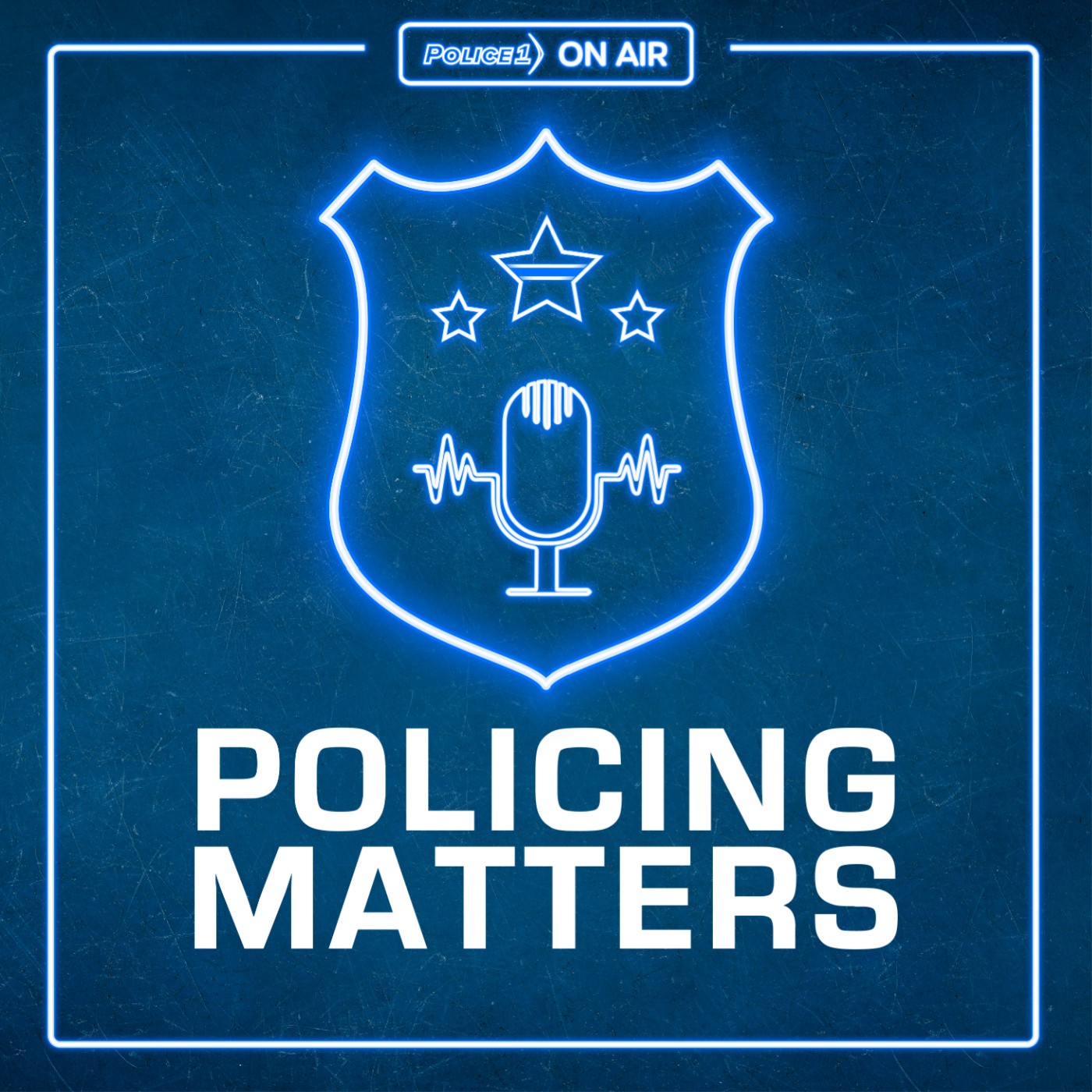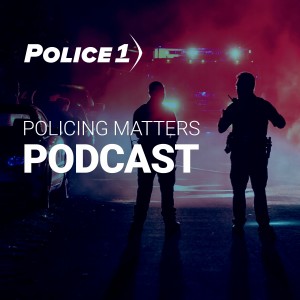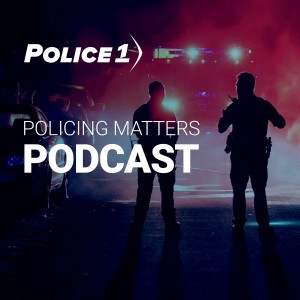
Talking the beat to cover what matters to you as an LEO. Join deputy chief Jim Dudley (ret.) every weekly as he sits down with law enforcement leaders and criminal justice experts to discuss strategy, challenges and trends in policing.
Episodes

Friday May 31, 2019
The difference between content-driven and problem-based learning
Friday May 31, 2019
Friday May 31, 2019
During the annual conference of the International Law Enforcement Educators and Trainers Association (ILEETA) in St. Louis, Policing Matters podcast co-host Doug Wyllie roamed the hallways and ran into countless law enforcement trainers and experts, some of whom were willing to sit down and talk about what they're teaching and what they're learning. In this podcast segment, Doug sits down once again with Dan Green to continue the discussion about FTOs and the difference between content-driven and problem-based learning.

Thursday May 23, 2019
How the FTO‘s teaching role differs from academy instruction
Thursday May 23, 2019
Thursday May 23, 2019
During the annual conference of the International Law Enforcement Educators and Trainers Association (ILEETA) in St. Louis, Policing Matters podcast co-host Doug Wyllie roamed the hallways and ran into countless law enforcement trainers and experts, some of whom were willing to sit down and talk about what they're teaching and what they're learning. In this podcast segment, Doug sits down with Dan Green to discuss the importance of the Field Training Officer and how the FTO's teaching role differs from academy instruction.

Friday May 17, 2019
How instructors can help students get more out of police firearms training
Friday May 17, 2019
Friday May 17, 2019
During the annual conference of the International Law Enforcement Educators and Trainers Association (ILEETA) in St. Louis, Policing Matters podcast co-host Doug Wyllie roamed the hallways and ran into countless law enforcement trainers and experts, some of whom were willing to sit down and talk about what they're teaching and what they're learning. In this podcast segment, Doug sits down with PoliceOne Contributors Todd and Chrystal Fletcher—co-owners of Combative Firearms Training, LLC—about the way in which their unique pairing provides opportunities for students to get more out of training.

Friday May 10, 2019
Is there a leadership problem in law enforcement?
Friday May 10, 2019
Friday May 10, 2019
During the annual conference of the International Law Enforcement Educators and Trainers Association (ILEETA) in St. Louis, Policing Matters podcast co-host Doug Wyllie roamed the hallways and ran into countless law enforcement trainers and experts, some of whom were willing to sit down and talk about what they're teaching and what they're learning. In this podcast segment, Doug sits down with PoliceOne Contributor Tim Barfield to talk about law enforcement leadership—specifically the failure of leadership to stand up for police officers following a critical incident.

Friday May 03, 2019
Friday May 03, 2019
During the annual conference of the International Law Enforcement Educators and Trainers Association (ILEETA 2019) in St. Louis, Policing Matters podcast co-host Doug Wyllie roamed the hallways and ran into countless law enforcement trainers and experts, some of whom were willing to sit down and talk about what they're teaching and what they're learning. In this podcast segment, Doug sits down with PoliceOne columnist Duane Wolfe, who discusses the importance of approaching officer wellness from the perspective of "totality of health."

Friday Apr 26, 2019
One officer‘s story of the day he put a gun to his head
Friday Apr 26, 2019
Friday Apr 26, 2019
During the annual conference of the International Law Enforcement Educators and Trainers Association (ILEETA) in St. Louis, Policing Matters podcast co-host Doug Wyllie roamed the hallways and ran into countless law enforcement trainers and experts, some of whom were willing to sit down and talk about what they're teaching and what they're learning. In this podcast segment, Doug sits down with PoliceOne columnist Duane Wolfe, who in 2012 wrote an article entitled "The day I put a gun to my head." Duane and Doug discuss the genesis of that article as well as the impact it has had on officers contemplating suicide.

Friday Apr 19, 2019
Friday Apr 19, 2019
During the annual conference of the International Law Enforcement Educators and Trainers Association (ILEETA) in St. Louis, Policing Matters podcast co-host Doug Wyllie roamed the hallways and ran into countless law enforcement trainers and experts, some of whom were willing to sit down and talk about what they're teaching and what they're learning. In this podcast segment, Doug sits down with Chief Bill Harvey to discuss some of the keys to multi-jurisdictional, multi-disciplinary response to large-scale events — both planned and unplanned — to ensure citizen and first responder safety.

Friday Apr 12, 2019
The importance of being a ‘predator‘ in a deadly confrontation
Friday Apr 12, 2019
Friday Apr 12, 2019
During the annual conference of the International Law Enforcement Educators and Trainers Association (ILEETA) in St. Louis, Policing Matters podcast co-host Doug Wyllie roamed the hallways and ran into countless law enforcement trainers and experts, some of whom were willing to sit down and talk about what they're teaching and what they're learning. In this podcast segment, Doug sits down with Lee Shaykhet, a renowned police trainer, who talks about predators versus prey—the importance of moving forward and doing what the subject doesn't expect in order to prevail in a deadly confrontation.

Friday Apr 05, 2019
How LE companies can better serve police
Friday Apr 05, 2019
Friday Apr 05, 2019
During the annual conference of the International Law Enforcement Educators and Trainers Association (ILEETA) in St. Louis, Policing Matters podcast co-host Doug Wyllie roamed the hallways and ran into countless law enforcement trainers and experts, some of whom were willing to sit down and talk about what they're teaching and what they're learning. In this podcast segment, Doug sits down with former editor of PoliceOne Scott Buhrmaster, who talks about how he continues to help law enforcement by helping the manufacturers and service providers that serve law enforcement be more effective in what they do.

Friday Mar 29, 2019
How the Below 100 program can save lives
Friday Mar 29, 2019
Friday Mar 29, 2019
During the annual conference of the International Law Enforcement Educators and Trainers Association (ILEETA) in St. Louis, Policing Matters podcast co-host Doug Wyllie roamed the hallways and ran into countless law enforcement trainers and experts, some of whom were willing to sit down and talk about what they're teaching and what they're learning. In this podcast segment, Doug sits down with Below 100 instructors Rod Rifredi and Kim Schlau, who discuss the five tenets of the Below 100 program—wear your belt, wear your vests, watch your speed, remember "what's important now" and complacency kills.
